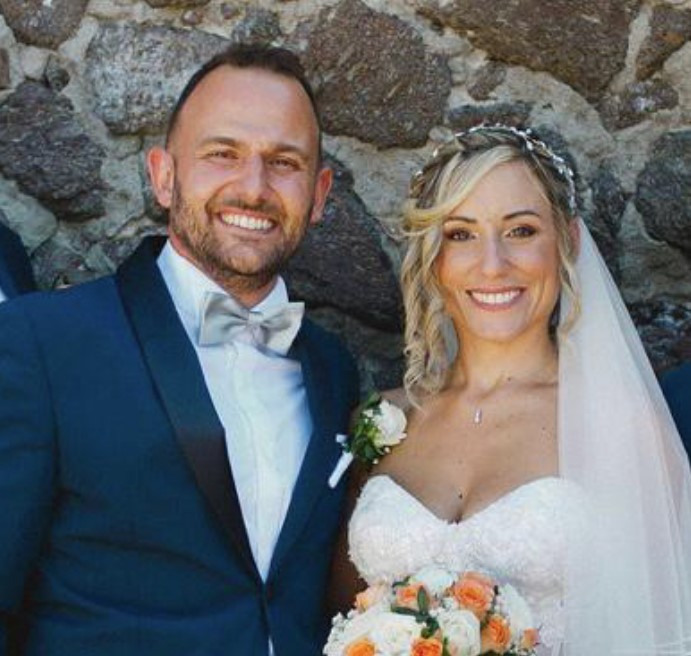Some Italians living in Melbourne decided to put off travelling until next year, while others had to dip into their savings in order to leave.
We are facing a staggering increase in the cost of flights compared to pre-pandemic figures, with some prices even higher than during the lockdowns.
The amount of money that once might have covered an entire vacation is now equivalent to the price of airfares alone.
Huge fuel costs, high demand for travel and the small number of airlines flying to Australia are the main factors in the price hikes.
According to the flight comparison site Kayak, the average price for an airline ticket to Europe has increased by up to 53 per cent.
However, industry analysts have pointed out an apparent discrepancy between high fares and profit maximisation by airlines.
After losing more than $7 billion during the pandemic, partially offset by government subsidies, the profits of Australia’s flag carrier Qantas have increased by nearly $1 billion more than the previous record in 2018.
For Italians residing in Victoria, the long-awaited time of year has arrived; an escape from the Melburnian winter to reunite with family and friends in the Bel Paese.
However, the sudden high cost of flights has left many high and dry.
After marrying in Sardinia last September, Marzia Fiorillo, from Sassari, and Alessandro Capponi, born in Civitavecchia, have put the brakes on their plan to return this year.
Their decision comes as a result of prices that have “increased exponentially and unreasonably”.
“We are talking about a price increase of at least $1500 per ticket in Economy Class,” Fiorillo said.
“Even considering the additional expenses we faced during the last period, we would still have been able to leave, thanks to the high salary levels that Australia accords us, but only if flight prices had maintained their pre-COVID-19 levels.”

Marzia Fiorillo with husband Alessandro Capponi
Now, it seems impossible to travel on a pre-pandemic budget without making compromises in terms of destination, route and the time it takes to plan.
According to experts, “strategic concessions” are needed to be made in order to “find affordable travel”.
“I got a ticket to Italy last March and it cost $2400, relatively little compared to current prices,” recounted Luigi Gussago, originally from Brescia, Lombardy.
“Unfortunately, I had to change dates and ended up paying an extra $500.
“In addition, the new changed flight has very long travel times, as many as 37 hours both outward and return.
“There is great uncertainty at the moment.”
Elena Maggi, originally from Como, left for Italy last week with her two children - Philippo, ten, and Carola, seven. Her husband and first child Oliver, 12, will join them in early July.
“This year we left separately for reasons related to school vacations, but also to be able to use award miles for flights,” Maggi recounted.
“It was very complicated, because airlines do not make many of them available, and in order to find them, you have to consult the sites on a daily basis.
“The cost of flights has risen exponentially, and you have to start booking well in advance, and organise from year to year to take advantage of the opportunities,” she added.
“If we did not find the flights with award miles, for a family of five like ours, it would be very difficult to go to Italy every year.”
Agnese Bresin, originally from Rome, will leave for the Belpaese next July 17 together with her husband and two little girls - Emilia, almost four, and Lucia, one and a half.
A researcher at La Trobe University, Bresin is taking advantage of the semester break in June to return to her family, but this year what stood in her way were the “really unaffordable” prices.
“Three plane tickets, considering that our youngest travels while lying on our laps, would have cost us about $17,000,” she explained.
“I tried consulting travel agencies as well, hoping they would have direct channels and more affordable flight combinations, but the costs were always the same.
“In the end, I gave up teaching availability for the second semester and we will leave in July. The tickets cost us about $8000.”

Agnese Bresin with husband Rohan and their two children
For analyst and former economist at Qantas, Tony Webber, airfares are only indirectly driven by operating costs.
“Airlines are aware of how strong demand is right now. They are recovering capacity and lowering fares slowly and passively, simply because they are making money,” he said.
Bresin understands the critical issues experienced by airlines during the two years of forced isolation, but stresses how much “expensive flights weigh on migrant families who have parents, siblings abroad”.












